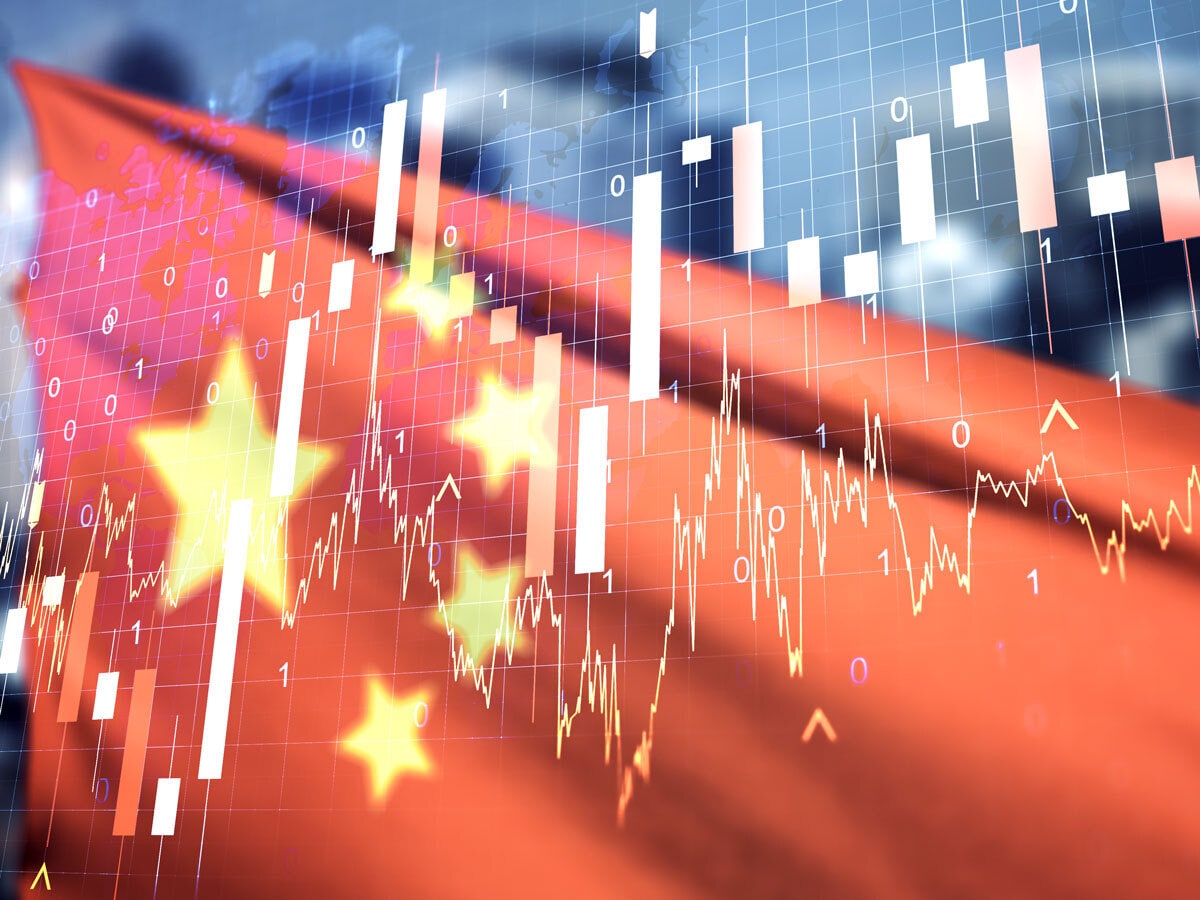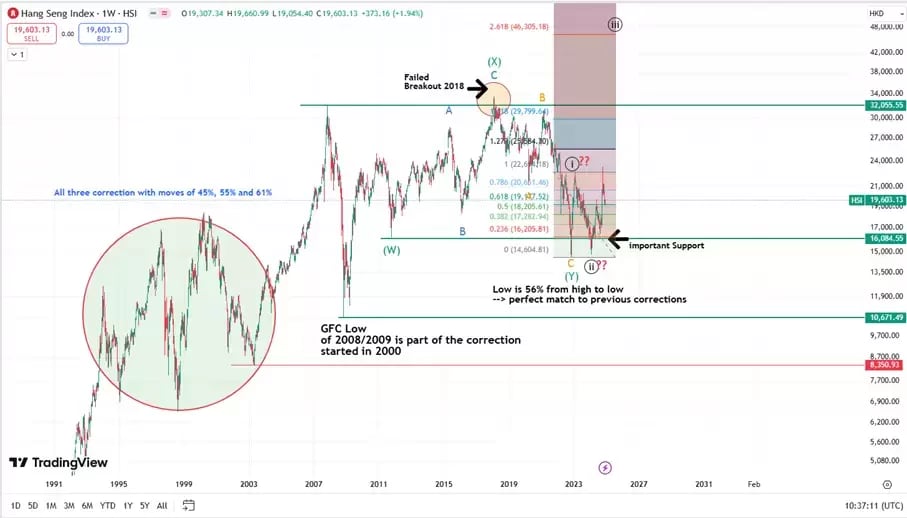
The Chinese stock market has lagged behind US and European markets in recent years, with significant price declines. It has dropped by 56% since its high in February 2018, falling into a real bear market.
The outlook for 2024 focused on whether the Hang Seng index could succeed in defending its November 2022 low at 14,600; it managed, albeit narrowly. Political relief arrived in September when the Chinese government introduced long-awaited stimulus measures, revitalising Chinese equities.
In 2025, the focus will be on whether these measures can deliver lasting results, and whether China can recover like the US after the 2009 financial crisis, or if the measures fizzle out without result, causing the depression to persist for years to come.
What could 2025 hold for Chinese markets?
From a technical perspective, the past two years have offered clear benchmarks for evaluating trends and managing risks.
Bulls could anticipate a rally in 2025 if the Hang Seng surpasses resistance at 22,600, potentially targeting 25,500 and 29,800. On the bearish side, the index failing to surpass 22,600 could signal that the stimulus measures are failing. The index breaking below the support zone from 14,800 to 16,400 could trigger a sharp sell-off towards lows at 10,670 - or even into four-digit territory.

Disclaimer: CMC Markets is an execution-only service provider. The material (whether or not it states any opinions) is for general information purposes only, and does not take into account your personal circumstances or objectives. Nothing in this material is (or should be considered to be) financial, investment or other advice on which reliance should be placed. No opinion given in the material constitutes a recommendation by CMC Markets or the author that any particular investment, security, transaction or investment strategy is suitable for any specific person. The material has not been prepared in accordance with legal requirements designed to promote the independence of investment research. Although we are not specifically prevented from dealing before providing this material, we do not seek to take advantage of the material prior to its dissemination.






















